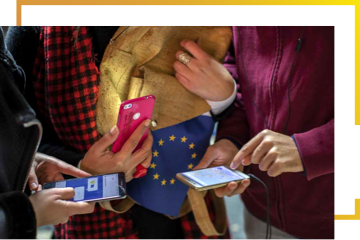The Digital Markets Act: Ensuring Fair and Open Digital Markets


Today, the European Union’s Digital Markets Act (DMA) has come into force. Today, the DMA has started the clock on a process expected to force Amazon, Apple, Google, Meta and other large online platforms ('gatekeepers') to make their platforms more open, fair and interoperable in 2023.
The DMA imposes significant do’s and don’ts for these gatekeepers. This, not only to help protect people and other businesses from unfair practices, but to allow society to receive the full benefits of the Digital Age. The DMA is expected to bring major changes to what one can do with their devices and apps. For instance, you should be able to download apps not just from one app store but from other app stores or from the internet. The dominant platforms are required to let in smaller competitors and could also compel chat apps to receive messages from competing apps. Furthermore, they are prevented from preferencing their own apps and services. In short, these large online platforms will be forced to break open the walls of their currently self-regimed fortresses.
The Commission will shortly decide which companies are large and entrenched enough to be classified as such Gatekeepers, subject to the strict rules. It is expected that about a dozen companies will be in that group, to be announced in Spring 2023. Thereafter, those announced gatekeepers will have six (6) months to come into compliance to the DMA.
Next up will be the Digital Services Act (DSA), which requires risk assessments of some algorithms and disclosures about automated decision-making and could force social apps to open their data to outside scrutiny. It is expected that the large online platforms will have to comply to the DSA from mid 2024. Same as the GDPR, the DMA and DSA are expected to lead to changes in how global tech platforms work, also beyond the EU, as certain compliance may be more easily implemented in multiple regions of the world.
These acts and actions all arise out of the Europe Fit for the Digital Age, and EU Digital Decade 2030 (DD2030) vision. It has an integrated approach with DD2030 targets and objectives, based on Declaration on Digital Rights & Principles, and related policy initiatives. These all put people at the centre, and empowering people, public and private sectors and society at large with a new generation of technology and the ability to improve the quality of life; human-centred, resilient, trustworthy, sustainable, sovereign, and accountable.
If you may want to learn more what this means for your organisation, supply chain and market, what your readiness level is, where the opportunities are, and which risks to prepare for and mitigate? Please give us a call.
